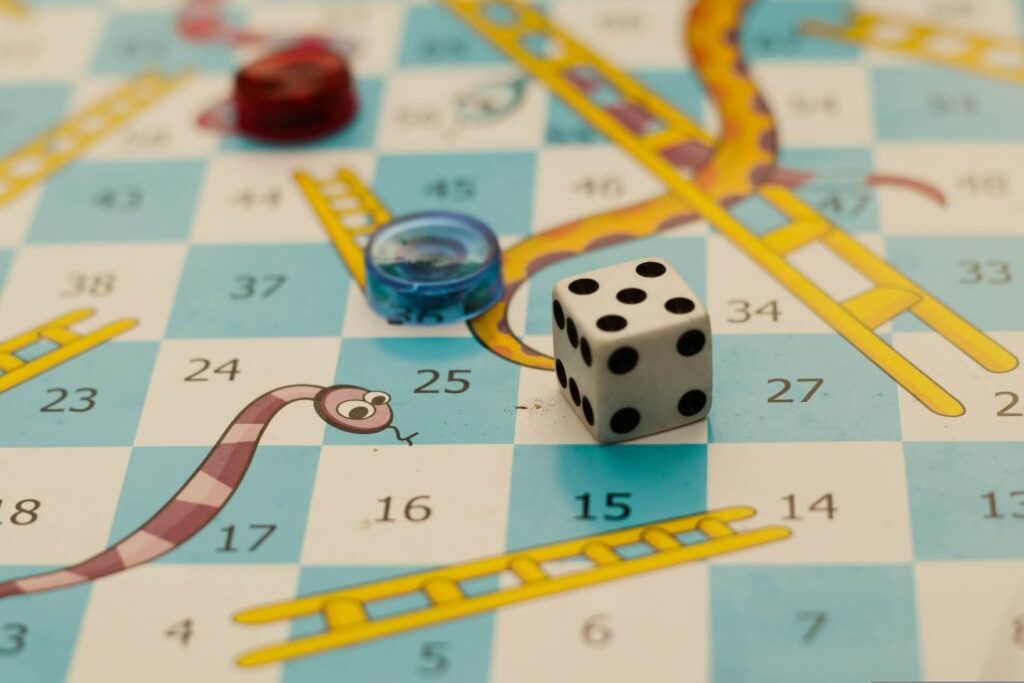
Do you remember those cherished moments when you gathered around the dining table with your family, eagerly anticipating the start of a board game?
The joy of rolling dice, the suspense of drawing cards, and the laughter that echoed through the room as you strategized and outwitted your loved ones. Board games have always held a special place in our hearts, creating bonds and memories that last a lifetime.
In today’s digital age, the advent of online gaming has made it possible to enjoy these timeless classics from the comfort of our own screens.
While the convenience is undeniable, there’s something about the traditional board game experience that cannot be replicated in the virtual realm. It requires unique skills and strategies to excel in this face-to-face battle of wits. That’s where we come in.
In this article, we aim to reignite the excitement of traditional board gaming by presenting you with the top five tips and tricks to emerge victorious in any game. So let’s begin.

Simple and Secret Tips to Win Board Game
Below, we share five meticulously crafted tips and tricks that will empower you to dominate any board game, leaving your competitors in awe of your skills.
Focus on the Game
One of the most common pitfalls in board game play is losing focus and letting distractions detract from your ability to analyze the game state and make informed decisions.
While socializing and having fun are important aspects of board gaming, if you aim to improve your skills and win more often, you need to train your brain to prioritize the game.
Stay engaged, observe the actions of your opponents, and continuously analyze the situation to make strategic moves that align with your objectives.
Play to Win
While playing for fun is a valid approach, adopting a mindset of playing to win can significantly improve your chances of success. Every move you make should be focused on advancing your position and getting closer to victory.
However, playing to win doesn’t mean dominating others or becoming overly competitive. It’s about making calculated decisions that maximize your opportunities without sacrificing the game’s enjoyment.
Strive for victory while maintaining a respectful and sportsmanlike attitude toward your fellow players.
No Mercy for Friends
When engaged in a board game, setting aside personal relationships and treating each player as a competitor is essential. Avoid cutting your friends or loved ones any slack solely due to your bond with them.
Remember, it’s a game, and everyone is vying for victory. If the optimal move involves challenging your friend’s position or seizing their territory, go for it.
Don’t let personal connections cloud your judgment or hinder your chances of success. In the end, the shared enjoyment of the game will prevail, regardless of the outcome.
Understand the Path to Victory
Most board games offer multiple paths to victory, and it’s crucial to have a clear understanding of all viable options. Identify the long-term goals that lead to winning and break them down into actionable steps.
By determining the specific resources, actions, or objectives required to achieve your goals, you can create a roadmap for success.
Focus on making moves that align with your short-term and long-term objectives, constantly inching closer to victory with each strategic decision.
Prioritize Game Objectives over Personal Goals
While personal goals within a game can be enticing, it’s important not to let them overshadow the primary objectives that lead to victory.
Avoid being blinded by personal achievements or side quests that may not align with the optimal path to win the game.
Instead, evaluate each move based on its potential to maximize points, strengthen your position, or hinder opponents’ progress.
Play for what will truly give you the best chance of winning, even if it means letting go of personal preferences or momentarily sacrificing individual ambitions.
Cribbage
So, after learning about all these rules and strategies, you must be eager to try out a fantastic board game. Well, we have just the game for you – Cribbage! Cribbage is a classic card game that has been enjoyed by many players worldwide for centuries.
It is a game of skill, strategy, and a bit of luck, usually played by two to four players. The objective of Cribbage is to be the first to score a certain number of points, typically 121 or 61, by forming various combinations and counting them on a scoring board.
The Cribbage board is an essential component of the game, as it keeps track of the scores. Traditionally, a Cribbage board is rectangular wooden with multiple rows of holes drilled into it.
The board has a starting position at one end and a finish position at the other. But what if you want to play Cribbage, but don’t have a Cribbage board? If you’re handy, there is nothing to worry about.
You can create your own Cribbage board using a few materials and tools. But remember to keep track of your scores using the pegs and holes on your new board.
Scrabble
Scrabble is a renowned word game that challenges players’ vocabulary, spelling, and strategic thinking. Since its creation, it has gained widespread popularity and remains a beloved classic among language enthusiasts.
The objective of Scrabble is to score the highest number of points by creating words on a game board using letter tiles. The game is typically played by two to four players, each with a rack of seven-letter tiles. The game board consists of a grid of squares, and each square has a different point value.
The placement of letters on premium squares, such as double letter score, triple word score, and more, can significantly affect the score of a word. Scrabble is not solely a game of vocabulary but also requires strategic decision-making.
Players must carefully consider their options with each move, weighing the potential scores, tile placement, and the opportunities it creates for their opponents. Balancing the desire to score points and the need to maintain a balanced rack of letters is crucial for success.
Directly in Your Inbox


![[10 Methods] How to Get Free Steam Games? Steam](https://media.tech-latest.com/wp-content/uploads/2023/03/24131930/Steam-Featured-1-300x169.jpg)






